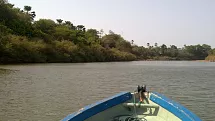
Senegal’s Niokolo-Koba National Park has been removed from the List of World Heritage in Danger.
The UNESCO World Heritage Committee which was meeting in New Delhi (India) made the announcement on Wednesday (Jul. 24).
The United Nations’ Educational, Scientific and Cultural Organization cited the positive results achieved by Senegal and its formal commitment to reappraise plans to the development of the property.
The site is in a lush area along the banks of the Gambia river. The gallery forests and savannahs of Niokolo-Koba are home to a rich wildlife, including the world’s largest antelopes.
It was included in the List of World Heritage in Danger in 2007 as poaching, basalt mining and other human activities were becoming growing threats.

Since then, “monitoring of emblematic species has been stepped up” and “considerable resources have been allocated to the surveillance of the park in order to combat poaching and illegal gold panning, as well as to better organize the transhumance of livestock,” UNESCO says.
The body also hails the setting up of a mine pollution control system. It also commends Senegal for work that has been carried out to improve the fight against the invasive species Mimosa pigra [Editor’s note: a species of plant].
The World Heritage Committee called on Senegal to continue its efforts in the coming years.
The National Park stretching over 913 000 hectare became as a UNESCO World Heritage site in 1981
